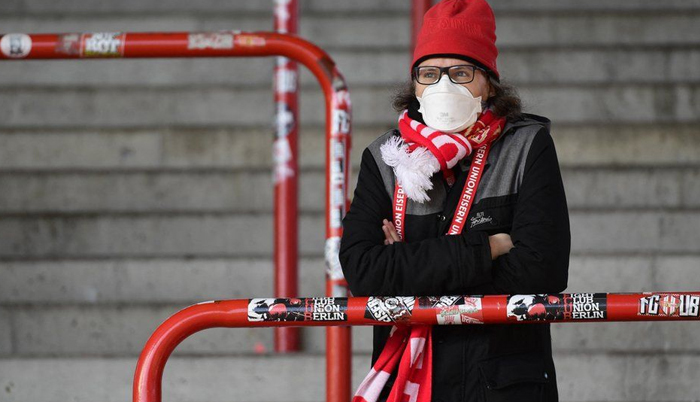
Covid restrictions have meant limited attendances in Germany’s Bundesliga but that will gradually change
BERLIN/VIENNA, Feb 18 (NNN-AGENCIES) — Austria and Germany have both announced plans to relax Covid-19 measures, weeks after pushing for compulsory vaccinations to curb infections.
Although unvaccinated people will still face restrictions, Germans are being promised a “freedom day” on March 20 while most measures will be dropped in Austria on March 5.
The Omicron variant has not led to a feared surge in hospital admissions.
However, Germany’s chancellor still aims to make vaccinations mandatory.
“The pandemic isn’t over,” said Olaf Scholz after a summit with Germany’s 16 states. Legislation on compulsory jabs has been left for parliament to decide but the chancellor said it remained important especially ahead of next autumn and winter.
Austria passed a law earlier this month that made vaccination against Covid-19 mandatory, the first country in Europe to do so.
Austria’s vaccine mandate kicks in amid resistance
However, no-one will be penalised for breaking the law until March 16, and the government has until then to decide whether to suspend the requirement. Chancellor Karl Nehammer said an advisory commission would recommend how best to proceed.
Much of Europe has already announced plans to loosen Covid restrictions as infections fall. Switzerland has announced that from Thursday Covid certificates are not needed to enter bars, restaurants or other indoor venues.
Germany’s leaders agreed on Wednesday to a three-step plan, starting with a raising of numbers of vaccinated and recovered people allowed to hold private indoor meetings, as well as Covid checks in non-essential shops.
From March 4, anyone who has been vaccinated or who has recovered from Covid will be allowed into bars and hotels without a test while unvaccinated people will be let in with a test.
Then from March 20 most other restrictions will be scrapped, apart from rules on masks. Attendances at major outdoor events will go up from 10,000 to up to 25,000 (or 75% capacity) on March 4, with the prospect of full stadiums on March 20.
Chancellor Scholz said it was a “very special day” and Germany could look to the future with greater confidence than before. Although case numbers on Wednesday were still almost 220,000 over 24 hours, the seven-day rate of infection has fallen.
In Austria, only highly vulnerable settings such as nursing homes and hospitals will retain Covid restrictions from March 5. Catering will be allowed overnight and Covid passes will not be needed, although masks will be needed on public transport and in essential shops.
As early as Saturday, anyone who has not been vaccinated will be allowed to enter places limited in recent months to those showing proof of vaccination or recovery. — NNN-AGENCIES





